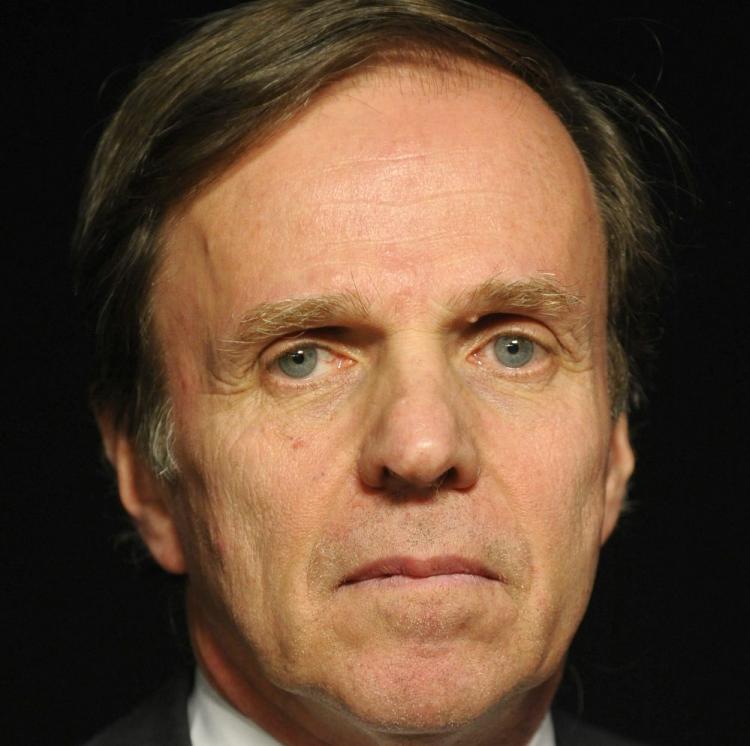Democracies have to do much more to protect democracy and freedom, according to many human rights activists. Authoritarian governments are using more resources and sophistication to repress free expression, freedom of association, and human rights, and the democracies need to become more vigilant or they will find themselves being outmaneuvered in places like the United Nations Human Rights Council.
“All democracies have to take some responsibility for what has happened to the Human Rights Council,” said Jennifer Windsor, executive director, Freedom House, at the museum on Feb. 19. Democracies need to “do more in protecting fundamental freedoms,” according to Windsor.
A subgroup of 24 of the activists met Feb. 18 with senior administration officials and senior National Security staff, who heard reports from the frontline struggles for freedom and democracy. The meeting was held at the Roosevelt Room in the West Wing of the White House, and was hosted by National Security Adviser Gen.l James Jones.
President Obama attended for about 30 minutes and “pledged that his administration will continue to strive to live by the universal standards we champion, [and] highlighted his commitment to engagement that extends to civil society and everyday citizens,” said the White House press secretary in a statement.
The White House statement seems to suggest that the U.S. policy needs to go past the governments with which it does diplomacy, and reach out to the people and nongovernmental organizations (NGOs). One criticism that was made at the White House meeting was the administration’s acquiescence to the governments of Egypt and Bolivia by stopping aid to civil society organizations. The activists at the meeting deplored these actions. The NGOs are an important institution for advocating democratic values and human rights protections, and it makes their human rights advocacy more difficult when they can’t accept funding from outside their country.
The activists drew primarily from persons involved with human rights NGOs and media. Two of those NGOs were sponsors of the summit: Freedom House and Human Rights First.
Freedom House was founded in 1941 as an independent, nongovernmental organization that supports the “expansion of freedom” in the world, and acts as “catalyst” for democracy, according to its mission statement. Human Rights First, founded in 1978, has had a leadership role in refugee protection, international legal rights, and opposition to torture.
Human Rights Activist Michael Posner: Outsider to Insider
One participant was an exception to the general rule that the activists came from the private sphere. Michael Posner, assistant secretary, Bureau of Democracy, Human Rights and Labor at the Department of State, was a prominent figure among human rights leaders, as executive director of Human Rights First, 1978-2006, and president of Human Rights First, 2006-09. His appointment five months ago makes him only the second person with a human rights background to attain the highest level position on human rights in the government.
Posner said that President Obama and Secretary of State Clinton are guided by a policy that has three broad concepts. First, the principle of engagement. “Engage friend or foe, but human rights has to be part of the discussion.” While conceding that the United Nations is “a very dysfunctional institution,” we need “more engagement” at the U.N. We made the decision to rejoin the U.N. Human Rights Council. “It was the right decision,” he said. “We need to be there to lead it back to a better direction.”
The second principle: “We believe in a single standard for all countries including our own ... We have lots of problems in our own society,” he said. As part of the Universal Periodic Review (UPR) of the United States, which all 192 U.N. countries pass through every four years, U.S. officials including Posner have been meeting with various civil rights organizations across the country. He said, “There are places where we need improvement. We need to lead by example, if we are going to be taken seriously.”
Posner mentioned policies related to national security issues, including the treatment of prisoners, as needing an honest acknowledgment of our problems.
Lastly, Posner said the new policy recognized the strong relationship between democracy development and human rights. He said that we need to work with a broader definition of democracy than just elections, which are only one aspect of democracy. We need “empowering civil society, strengthening the media, building the rule of law, transparency, and accountability—things that make societies work.”
“There are many, many countries that stay up late at night figuring out how to constrain NGO activity, especially in the human rights realm—restricting access, restricting right to register [of NGOs], restricting foreign funds.” Posner mentioned Egypt, China, and Bolivia as countries that target their NGOs. Posner said that the U.S. has to fight that creatively and aggressively. “It’s part of what human rights are really about.”







Friends Read Free